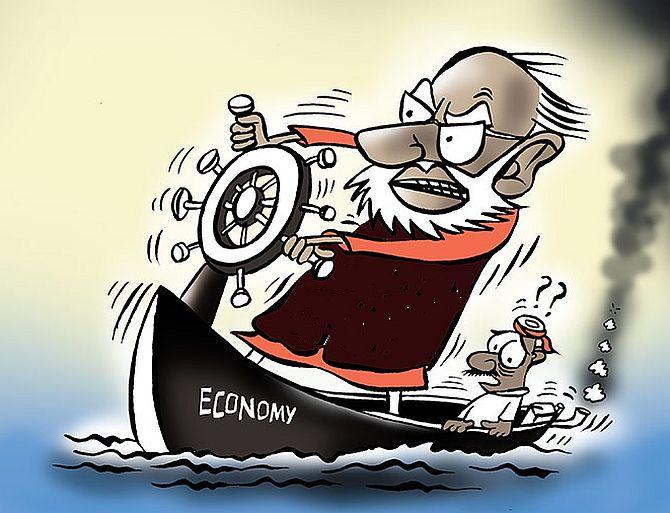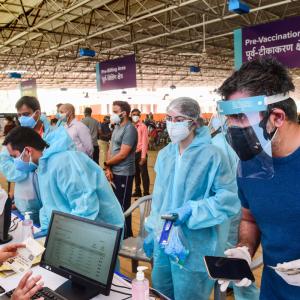GST mop-up likely to fall in May, June after touching record levels in April and March.

Fewer e-way bills have been generated in May so far, with the daily average falling to a one-year low, indicating a sharp slowdown in economic activity owing to the intense second wave of Covid-19.
According to the data by Goods and Services Tax Network (GSTN), the IT backbone of the unified indirect tax regime, 19.4 million e-way bills have been generated on its portal till May 16.
This averages to 1.21 million e-way bills per day compared to 1.95 daily in April and 2.29 million in March, and is the lowest since May 2020 when it fell to 0.87 million bills per day.
This suggests that GST collection for May and June may see a downward trend after touching record levels in April and March.
April saw e-way bill generation decline to 58.7 million from 71.2 million in March, which reflected in the record GST collection in April at Rs 1.41 trillion.
The GST collection numbers for April largely capture transactions or supply made in March.
February had seen an average of 2.28 million e-way bills generated per day.
E-way bill generation in May will reflect in the GST numbers of June.
E-way bill is a document that needs to be generated by GST taxpayers for inter-state movement of goods if the value of the consignment exceeds Rs 50,000.
It is an early indicator of trend in demand and supply in the economy, which reflects in macroeconomic indicators with a lag.
August had seen 49.4 million e-way bills, an average of 1.59 million per day.
The economy had started showing recovery signs in September last year after the impact of nation lockdown in the first quarter wore off.
GST collections have been exceeding the Rs 1-trillion mark since October last year.
Key cities including Delhi, Mumbai and those in Haryana, Uttar Pradesh, Karnataka, among others are facing a lockdown, affecting supply of goods.
Most cities have imposed restrictions on supplies of non-essentials by e-commerce players.
M S Mani, senior director, Deloitte India said that the all-time high collections in April, which relate to supplies made in March, could now give way to muted collections in the coming months.
“While some of the services sectors such as hospitality, entertainment and aviation have been grappling with a significant decline in their businesses, any reduction in e-way bill generation could point towards a significant decline in gross domestic product (GDP),” said Mani.
Several agencies have cut India’s GDP forecast over the past week after the second Covid wave.
Last week, Moody’s cut India’s GDP forecast for FY22 to 9.3 per cent from the earlier projection of 13.7 per cent.
Citi has lowered India’s GDP estimates for FY22 by 50 basis points to 12 per cent in 2021-22 and has warned of another 50-basis-point cut.
It has indicated a sharp weakening of economic activity.
State Bank of India has also cut the forecast by 60 basis points.










